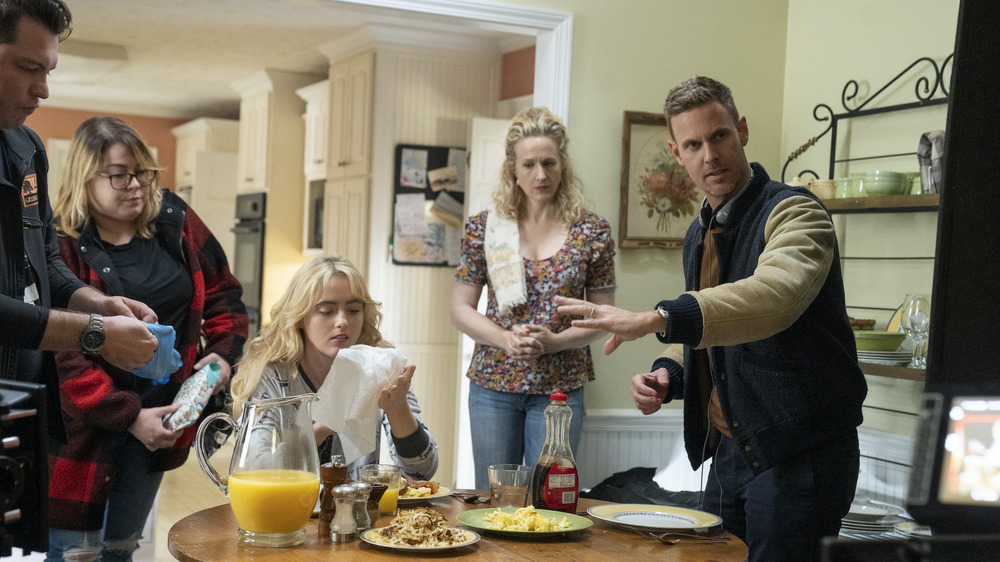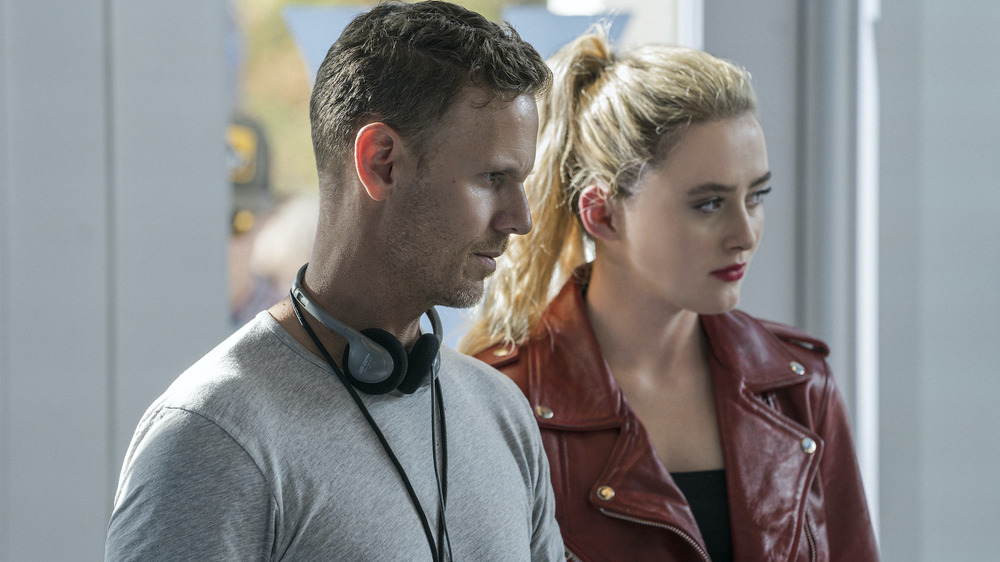The Surprising Movies Director Christopher Landon Avoided While Making Freaky - Exclusive
Set for release on Friday, November 13, director-slash-co-writer Christopher Landon's new film Freaky is a mash-up of classic body-swap movies like Freaky Friday and long-running horror franchises like Friday the 13th. Vince Vaughn (Wedding Crashers) plays a serial killer in a Jason Voorhees-meets-Leatherface-style mask, who switches bodies with a high-school-aged teenager named Millie Kessler, played by Kathryn Newton (Big Little Lies), via a magical dagger.
Landon gave the world an energized new take on both time-loop and slasher movie tropes alike with Happy Death Day and its sequel Happy Death Day 2U. Groundhog Day was certainly an inspiration for the Happy Death Day films; it was even name-checked by the characters. But while the Freaky premise shares obvious commonalities with Rob Schneider's The Hot Chick, the glut of body-swap comedies popular in the '80s, and other movies, Landon actually avoided certain films while making Freaky.
"I had seen some of the movies over the course of my lifetime, as a kid [and] as a young adult," he explained in an exclusive interview with Looper. "But there were a lot of them that I have not seen."
Body-swap movies the Freaky filmmaker hasn't seen
Landon was familiar with the Freaky Friday remake starring Lindsey Lohan and Jamie Lee Curtis, as well as the 1976 original. He saw the Nicolas Cage-John Travolta action flick Face/Off, in which a cop trades appearances with a criminal. During the conversation with Looper, Landon also fondly remembered the Steve Martin-Lily Tomlin comedy All of Me, which sees their characters are forced to inhabit the same body. But that's about it — Landon steered clear of other body-swap movies when creating Freaky.
"When Michael [Kennedy] and I set out to write this movie, I intentionally avoided them, as kind of a general rule," he explained. "When I did Happy Death Day, I didn't go back and watch other time loop movies, because I actually feel like it's almost intimidating. I didn't want to get in my own head about things and start worrying about like, 'Oh, but they did that, and I can't do this.' And so, I just don't go there."
He's never watched The Hot Chick with Schneider and Rachel McAdams, Vice Versa with Fred Savage and Judge Reinhold, Like Father, Like Son with Kirk Cameron and Dudley Moore, or even the Jumanji films. As Landon confessed, "I can't say that the body swap canon helped me out here per se. But I always want to be able to add my voice to it. And for me, the best way to do that is not to pollute my brain with what's come before.
Freaky is out in U.S. theaters on November 13, and will be available for purchase through video-on-demand platforms on December 4.

